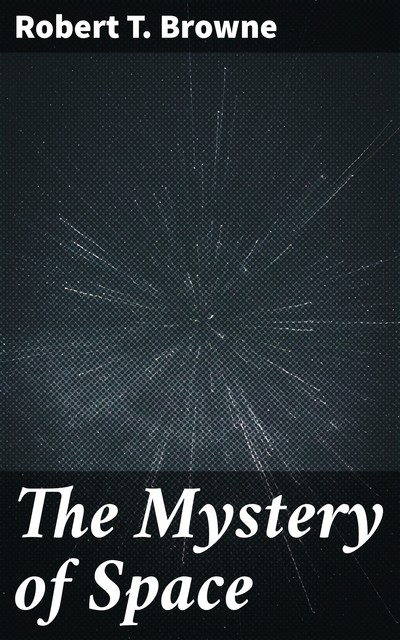In “The Mystery of Space,” Robert T. Browne delves into the enigmatic vastness of the universe through a compelling blend of lyrical prose and rigorous scientific inquiry. This work is marked by its rich tapestry of speculative thought and philosophical underpinnings, offering readers a reflective exploration of cosmic phenomena alongside humanity's place within it. Browne skillfully navigates the interplay between scientific discovery and metaphysical wonder, positioning the book within the broader literary context of early 20th-century exploration and existential inquiry, where science fiction and philosophical inquiry frequently intersect. Robert T. Browne, an esteemed thinker and writer, was deeply influenced by the rapid advancements in astronomy and physics during his time. His academic background, coupled with a personal fascination with the cosmos, propelled him to write this seminal work that reflects both the curiosity and skepticism of his era. Browne'Äôs unique ability to articulate complex scientific ideas in an accessible manner showcases his commitment to making the mysteries of the universe comprehensible to the general reader. For those captivated by the intersections of science, philosophy, and literature, “The Mystery of Space” is a must-read. Browne'Äôs evocative exploration not only enriches one's understanding of the cosmos but also invites readers to ponder their own existence amidst the stars, making it a timeless piece that resonates with both dreamers and scholars alike.


